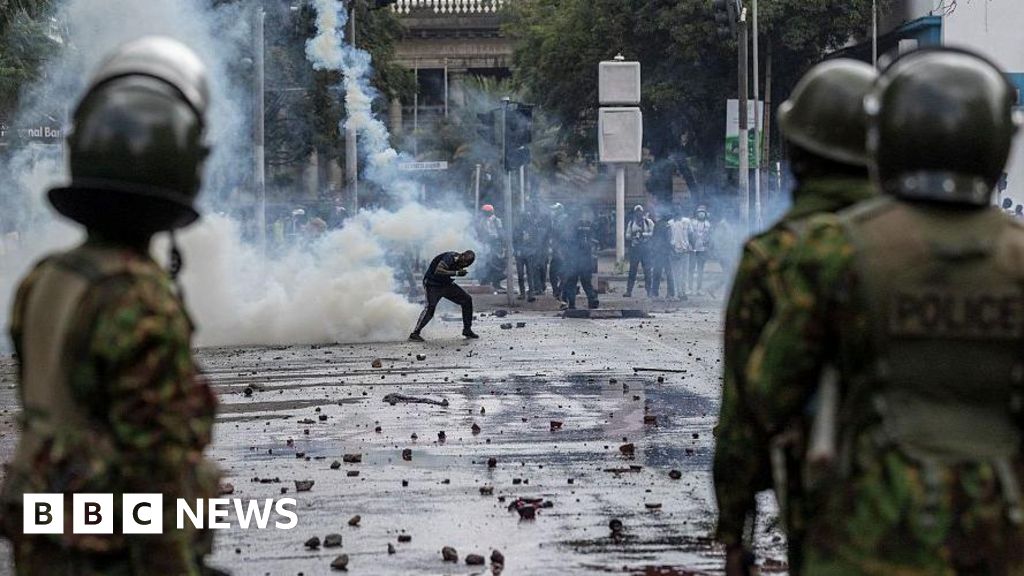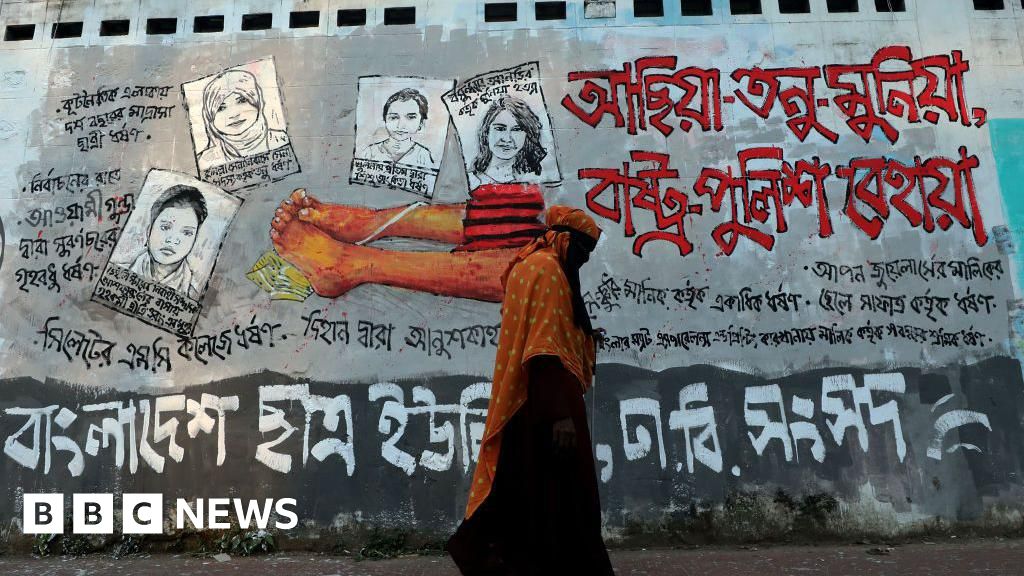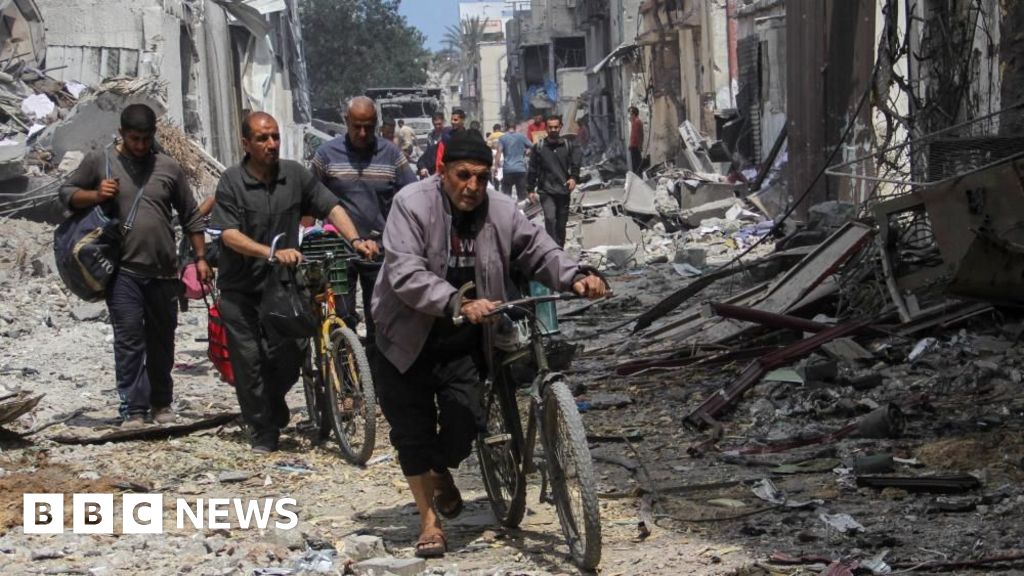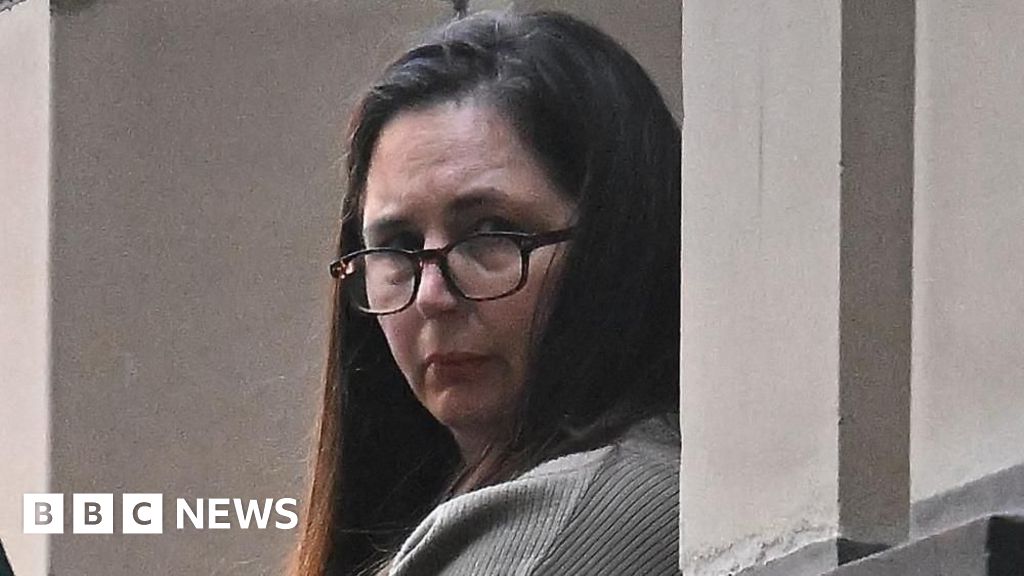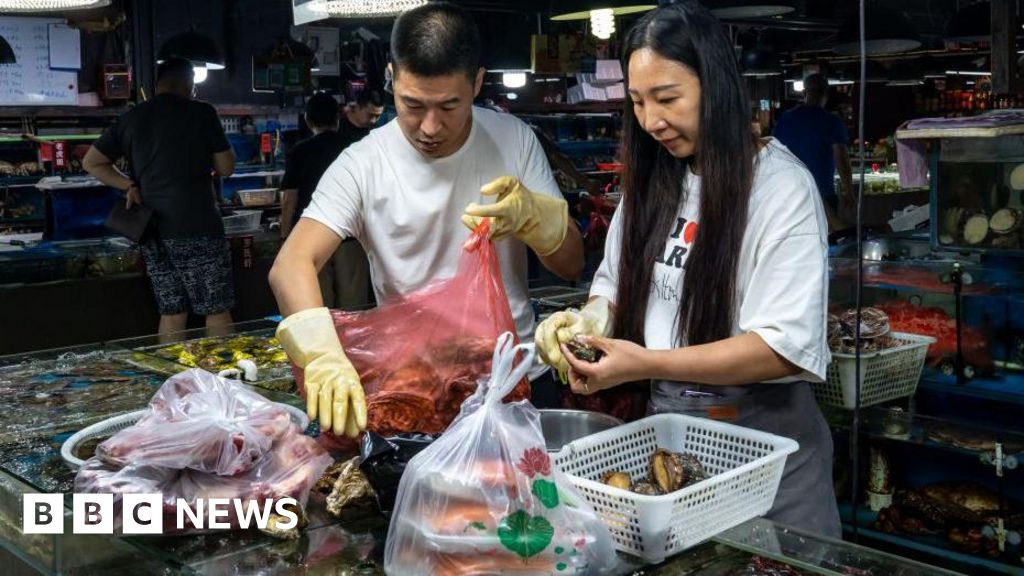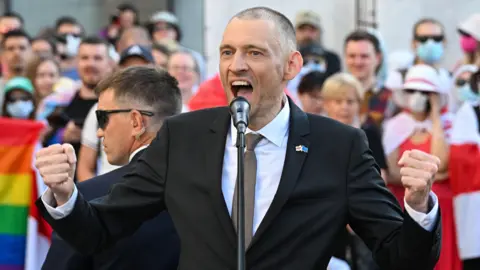 EPA
EPASergei Tikhanovsky has barely spoken for more than five years.
All that time he was held in solitary confinement in a high security Belarusian prison for daring to stand up to a dictator.
Now the former opposition blogger is free, and words stream out of him so quickly that his thoughts sometimes struggle to keep up.
“The restriction on speaking was the hardest thing,” Sergei confided when we met in Vilnius very soon after his surprise release.
“When you can’t say or write anything, you can’t talk to anyone and you’re just trapped in a cell – that’s the toughest thing – not the restriction on movement.”
Sergei is now in enforced exile, freed along with 13 other political prisoners after a senior US delegation paid a rare visit to the authoritarian ruler of Belarus, Alexander Lukashenko.
When I ask about the reunion with his family, Sergei lifts a hand to his face and weeps.
His daughter was only four when he was arrested.
“She didn’t recognise me,” he manages eventually, after a long pause. “Then she threw herself into my arms and we hugged for a long time.”
Sergei’s transformation since his arrest is shocking.
Back in 2020 he was stocky and bearded. Now the face beneath his close-shaven head is gaunt. He says he’s lost almost 60kg (132 pounds) in jail, where he spent endless weeks in punishment cells.
“Physically I’m half the size and half the weight,” Sergei says. “But my spirit is not broken. Maybe it’s even stronger.”
“Before I’d only heard of the crimes of this regime, but now I’ve seen them first-hand and we have to fight that.”
Until last week, Sergei Tikhanovsky was one of the most prominent political prisoners in Belarus.
Ahead of the 2020 presidential election he developed a big YouTube following by filming candid interviews about people’s complaints and problems.
Then he tried to register to run himself, waving a giant slipper and calling on Belarusians to “Stop the Cockroach!”.
“I was using the chance to show that it’s impossible to win democratically in Belarus,” Sergei explains. “I wanted to show that the elections are fake, and they arrested me.”
When his wife, Svetlana Tikhanovskaya, went on to run in his place she attracted huge crowds. After Lukashenko claimed another implausible victory, those crowds became a mass protest which soon became mass arrests.
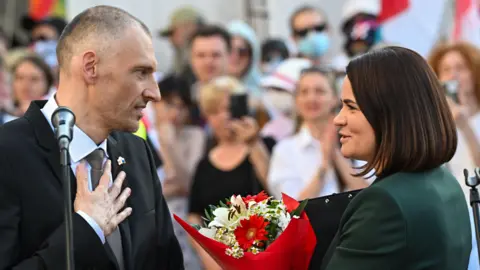 EPA
EPAIn prison, Sergei was constantly singled out for ill treatment like the other high-profile figures – “the ones they think are most dangerous, or who they want to destroy”, as he puts it.
“For the last two-and-a-half years I was in total isolation. I didn’t get a single letter in almost three years. For almost three years they didn’t let me have any phone calls,” he says.
He wasn’t even allowed to see a priest.
“They’d say: you will die in prison. We are going to keep extending your time and you won’t get out.”
To make matters worse, Sergei was frequently sent to a punishment cell – for a mark on the wall or a stray cobweb.
“Those cells could be three-by-two metres, including a hole in the floor for a toilet,” he recalls. “No mattress, no sheet and no pillows.”
He would get up every hour through the night to keep warm with sets of squats and sit-ups, then lie on the wooden bunk until his arms and legs seized up, and he had to start the exercises all over again.
To cope, he had to empty his brain of all thoughts of family and friends.
“You have to put that to one side,” he says. “Because if you think about how they are and what’s happening to them, you won’t survive.”
It was last August when Sergei started to think he might be getting out.
That’s when the deputy prosecutor began touring prisons and “seriously recommending” that political detainees “write to the dictator and request his pardon” as Sergei puts it.
Lukashenko was suddenly keen on looking merciful and several dozen were released.
Sergei and the other big names, like Viktor Babaryka and Maria Kolesnikova, were never on any lists.
But he never entertained the idea of confessing, even to get back to his children.
“I am no criminal,” he explains. “So that would be a betrayal of all who support me.”
Then last week the United States stepped in.
When special envoy Keith Kellogg travelled to Minsk to intercede for American citizens in prison, he emerged with Sergei, too.
For Lukashenko, the meeting with Kellogg was a big win diplomatically.
He has been ostracised by Western countries since he suppressed the peaceful protests in 2020.
His active support for Russia in invading Ukraine has isolated him still further.
“Now Lukashenko could show some co-operation was starting, a dialogue with the US,” Sergei says, explaining what Lukashenko got for freeing some prisoners.
“That was the price: the start of contact with him. Because no-one had been engaging.”
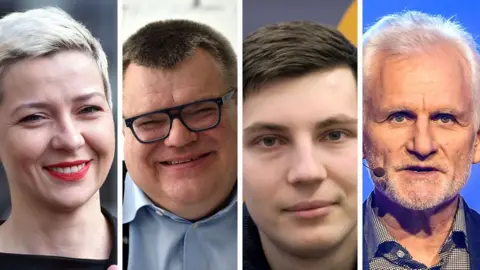 Getty Images & RFE/RL
Getty Images & RFE/RLSergei wants nothing more than for all the other political prisoners to be released, too. There are more than 1,000 in total.
In tears, he describes meeting an “old man” recently who turned out to be a young friend, aged beyond recognition by prison.
“I’d give anything to get them all out,” Sergei says. “I think we should pay any price. But I don’t want them to drop all sanctions.”
Sergei’s wife, now the leader of the opposition, is overjoyed to have him back with her and their children. But Svetlana tells me she i’s wary of the next US move.
“We cannot soften the sanctions until repressions fully stop,” she argues. “For 14 people released, 28 more were detained immediately in Belarus. For Lukashenko, there is no change in policy.”
Sergei’s first week of freedom has passed in a whirl of activity. He has met politicians, made speeches and written to Donald Trump with his thanks. He has also been catching up on lost time with his children – as well as all the news he has missed in isolation.
But what about his ambitions? The last time he and Svetlana were together she was a housewife and he was the political one. So could there be tensions?
“I don’t have any claims to her role,” Sergei insists. “I don’t need that. I just need a democratic Belarus.”
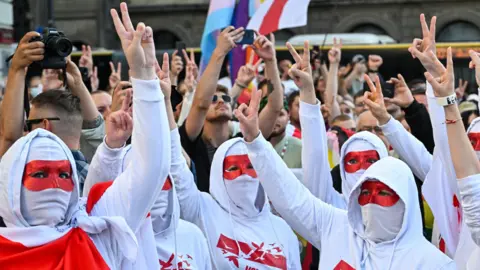 EPA
EPASource link

